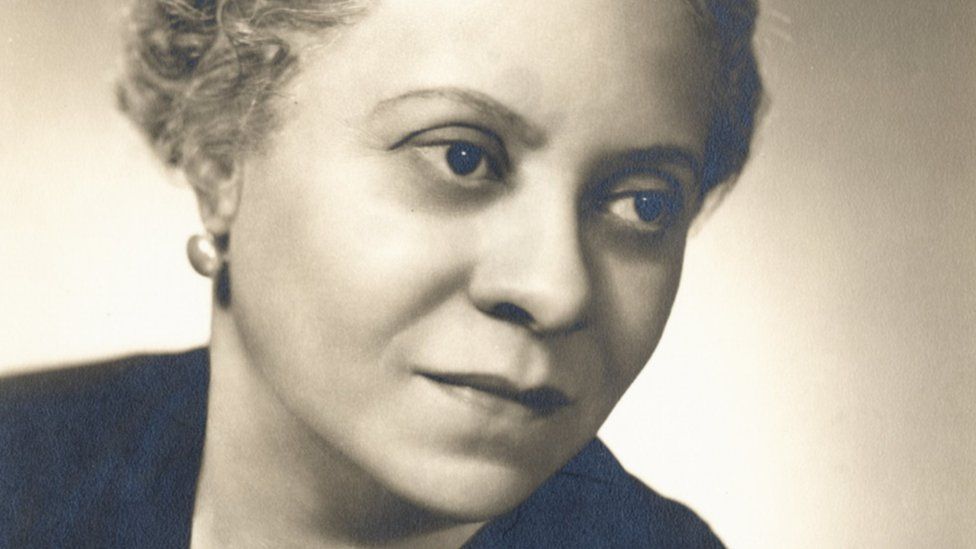
Her family operated in exclusive circles, with such notable figures as statesman Frederick Douglass visiting her home. Her father’s occupation as a dentist allowed for a lavish home, music lessons, and a well-rounded education. At the time, Little Rock was reasonably integrated, and a strong, Black middle class flourished. I should like to be judged on merit alone.ĭespite the grip segregation had on the United States, Price’s early years in Little Rock were comfortable. Knowing the worst, then, would you be good enough to hold in check the possible inclination to regard a woman’s composition as long on emotionalism but short on virility and thought content – until you shall have examined some of my work? As to the handicap of race, may I relieve you by saying that I neither expect nor ask any concession on that score. I am a woman and I have some Negro blood in my veins.

To begin with I have two handicaps – those of sex and race. In a letter to famed conductor Serge Koussevitzky (who, incidentally, ignored her attempt to send him scores), she wrote, Born in Little Rock, Arkansas, Price struggled her entire life with the effects of segregation, misogyny, and racism, despite her undeniable talents as a musician and composer. In the opening movement, she quotes one of the most famous spirituals, "Wade in the Water." Price adds another "Juba Dance" for the third movement, and concludes with a bustling Scherzo that alternates serious and lighthearted episodes, ending with a bang.As Black History Month draws to a close and we are about to embark on Women’s History Month, one pioneering composer neatly straddles the intersection: Florence Price (1887-1953). Two years later, she wrote her final symphony, the newly resurrected Fourth. "I have two handicaps," she wrote: "I am a woman and I have some Negro blood in my veins."īut Price pushed on. In 1943, she sent a letter to Serge Koussevitzky, conductor of the Boston Symphony Orchestra, acknowledging what she was up against. Still, she scraped to make ends meet, writing pop tunes and accompanying silent films. The great contralto Marian Anderson closed her legendary 1939 Lincoln Memorial concert with a piece arranged by Price. Price and her music were well received in Chicago. In the third movement, African drums accompany a syncopated "Juba Dance," a folk tradition that originated in Angola and moved, with slaves, to American plantations. Cathedral chimes glisten in the serene slow movement, where a brass choir converses with delicate winds. Price might be searching for her own voice in her First Symphony, but she adds distinctive touches. But racial tensions were on the rise, and a downtown public lynching in 1927 triggered a move to Chicago.Īmerican Anthem How The 'New World' Symphony Introduced American Music To Itself After earning two diplomas, she returned to Little Rock, where she taught, got married, and began raising a family. In 1904, Price enrolled at the New England Conservatory in Boston, one of the few music schools to accept black students at the time. Her mother gave her music lessons since none of the leading white teachers in town would take her. Price was born in 1887 in Little Rock, Ark. This world-premiere recording is another new piece of the puzzle to understanding the life and music of Price, and a particular time in America's cultural history. Among the discoveries in what turned out to be Price's abandoned summer home was her Fourth Symphony, composed in 1945. Not long ago, a couple bought a fixer-upper, south of Chicago, and discovered nearly 30 boxes of manuscripts and papers. Price's First Symphony, along with her Fourth, has just been released on an album featuring the Fort Smith Symphony, conducted by John Jeter.įans of Price, especially in the African-American community, may argue that her music has never really been forgotten. The performance marked the first time a major orchestra played music by an African-American woman. 1 by a then little-known composer named Florence Price.


In 1933, the Chicago Symphony Orchestra gave the world premiere of Symphony No. Special Collections, University of Arkansas Libraries Florence Price was the first African-American woman to have her music performed by a major symphony orchestra.


 0 kommentar(er)
0 kommentar(er)
